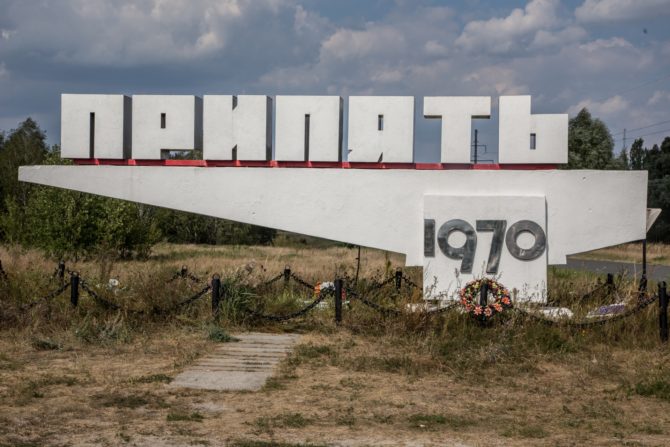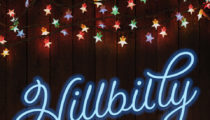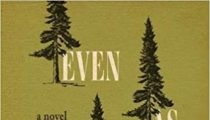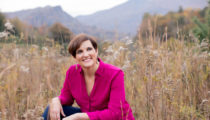Knox Thompson first crossed paths with the man who would…

Matryoshka (I see my old age in the faces of three women living in chernobyl’s exclusion zone)
I love my native lands and I love my graves.
—Hanna Zavorotnya, The Babushkas of Chernobyl
Babushka No. 1
When you unfurl your head scarf,
I half expect dupa1-length hair;
instead, you wear it thinly-cropped,
the grey cut close to the flesh. I
suppose it’s easier this way,
to sever the reminders that youth
has passed, that our time has come.
At 31, I return to my hair the kosa2
my grandmother taught me to plait,
that symbol of maidenhood
I am too stubborn
to forsake.
Babushka No. 2
Your son died at 32, and you
buried him inside the Exclusion Zone.
You announce the memory
of your son’s death with a brashness
I learned during my childhood afternoons
spent playing cards and sipping tea,
sucking caramels and drying clothes
with Titka3 Rita, who reminded me
not to whistle because It
makes the angels cry.
Four months shy of 32,
I have no sons, a choice
I made to spare them
—and me—
the questions, the strangeness,
the explanations as to why
their father can’t understand.
Once, on Ivan Kupala,
I dreamed I bore a son
He emerged from me, his hair
cut in a chupryna4, his right ear
already pierced, a silver tryzub5
dangling from the lobe.
My son, he shook his fist
at the ground. When I
looked at his right hand,
I saw he carried his grandfather’s shashka,6
Babushka No. 3
You dance in your garden, your flowered head scarf tied
around your face, your arms spread.
You greet the sun, point the soon-to-exist rows, announce
kartoplya7, kapusta8, buryak9, ohirok10.
You tell the sky This is mine. This is Baba’s as you recount
how, upon returning three days
after the explosion, you put Ukrayina’s soil into your
mouth and declared Ya nikoly ne pokyne.11
I envy you because you held on your tongue what I
never could, though I know our alphabet, our enunciations
and pronunciations, though I can sign my name in two
languages—and often do—to remind myself home can be
5,100 miles from embering mountains that cannot
translate the schema my ancestors sculpted in my bones,
my eyes, the roses on my head scarf that I touch as I lean
against an oak tree, its branches pointing downward into
my hair, whispering Dochka, ty nikoly ne poyidesh.12
1 Ukrainian word for “buttocks” or “ass.”
2 Ukrainian word for “braid.”
3 Ukrainian word for “aunt.”
4 The traditional Cossack haircut.
5 The Ukrainian word for “trident.”
6 A straight sword carried by most Ukrainian Cossacks.
7 Ukrainian word for “potato.”
8 Ukrainian word for “cabbage.”
9 Ukrainian word for “beet.”
10 Ukrainian word for “cucumber.”
11 Ukrainian for “I will never leave.”
12 Ukrainian for “Daughter, you will never leave.”



